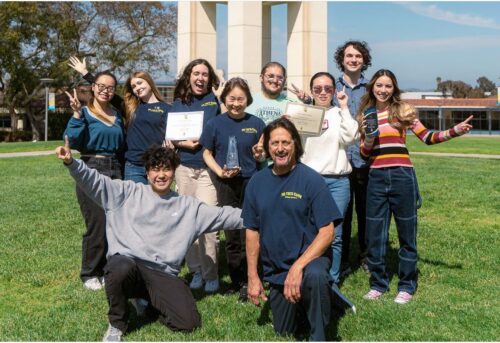Mahlon J. Randolph was 19 and in his sophomore year at Albany State University-West Campus (then Darton State College) in Georgia when he decided to routinely get tested for HIV after learning of the HIV/AIDS epidemic impacting the state. He realized that it was his responsibility to ensure his health, so he decided to visit the student health clinic to get tested.
The clinic could only offer free testing when the local health department could send a tester, which was once a semester. His first HIV test was in the spring of 2014; the results came back negative. When the tester returned in September of that year, the test came back reactive (positive), and everything in his world changed.
“I was devastated. I threatened to kill myself,” he said. “It became nearly impossible to see myself becoming successful or achieving my life goals. I’d always believed I could achieve anything, and for years I had stopped believing it.”
It’s taken some time, but through advocating for others like himself, Mahlon has been able to find purpose with his diagnosis and focus on his new life’s work.
Mahlon grew up in Jonesboro, Georgia, about 15 miles south of Atlanta. An average student academically, he was drawn to extracurricular activities in high school, like the morning announcements, running for homecoming court, and spearheading an environmental club. He supported similar environmental efforts at Darton State, where he also joined PTK.
“I’ve always been a ‘save the trees, save the world’ kind of guy,” he said.
This early interest in advocacy, as well as his knack for public speaking and leadership, led Mahlon to major in political science, with an interest in growth and development. He always had big ideas, and through leadership in on-campus organizations, he created spaces for others to emerge as leaders.
For a period, this came to a halt due to his HIV diagnosis. He earned his first C at Darton, and for the first time didn’t make the Dean’s List. His personal and professional relationships suffered. And, he ended his sophomore year with his lowest GPA yet at a 2.9.
And to make matters worse, in June of 2015, he disclosed his status to his family, who also didn’t know how to cope with this new reality.
He found himself frustrated for being unprepared to deal with the trauma that affected his loved ones. This miseducation and infighting fueled by stigma and ignorance eventually upended his relationship with his mother.
“These were the factors that fueled my homelessness,” he said.
His mother severed ties. He then slept on couches, slept in his car, stayed with strangers, and eventually lived in a homeless shelter. Throughout, he was working two jobs and trying to figure out how to continue his education. He had no support system during this devasting time.
“I don’t know how I kept going,” he said. “Sometimes it’s a shock I did.
Mahlon was able to get his own apartment in January 2016. He was 20 years old, and he felt like things were getting back on track. He started working at AID Atlanta in June 2016, which provides HIV/AIDS-related services, care, and education to thousands of people throughout the state.
His formal advocacy work officially began in August 2016, when he joined the Youth HIV Policy Advisor Program through Georgia Equality, which was set up to educate young people living with HIV and to lead advocacy and policy reform. Also, in fall 2016, he enrolled at Georgia State University where he will be earning his bachelor’s degree in public policy this December.
“I do think acceptance of my diagnosis came with the work, and with the community I found,” he said. “I found myself, and I faced the trauma associated with my diagnosis, and I’ve been able to help others do the same.”
Mahlon is in his second year on the Georgia Prevention and Care Council, which oversees and plans for the prevention and care of HIV/AIDS in the state. He was named Georgia Equality’s 2017-2018 HIV Policy Fellow and led advisory boards and professional trainings on patient engagement with social services providers.
He also serves as chair of the Youth Advisory Committee for the Atlanta Housing Continuum of Care, where he works with city officials to address housing disparities impacting youth.
“I’m committed to issues surrounding HIV, housing, homelessness, and disparities in social services because I’ve experienced it,” he said. “I understand the psychological trauma that comes with homelessness, with a diagnosis, and with living with HIV.
“I don’t have to do this work because I have HIV; I do it because I’ve chosen compassion over defeat. I care deeply about those living with HIV and those who are at risk — they deserve a devoted workforce.”
It took a once-devastating HIV diagnosis to point Mahlon in the right direction. While he’d always envisioned work in government, his diagnosis refocused his passion to advocacy and ensuring government works equitably.
To commemorate World AIDS Day on December 1, Mahlon will speak at a Know Your Status event in Albany, Georgia. He’ll also attend the 2018 World AIDS Day Policy and Action Luncheon on November 30, hosted by the Center for Civil and Human Rights in Atlanta.
As he continues his advocacy work, Mahlon has advice for others who are passionate about a social issue and advocacy. First, to educate themselves about the issue and become familiar with the people the issue affects and their values. Then, to find opportunities to socialize with other people who share the same passion.
“Advocacy can be a long road, and becoming discouraged is the greatest threat to your passion, so keep sight of the things that sparked your passion in the first place and keep the people that love and support you in your corner,” he said.




